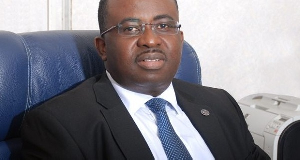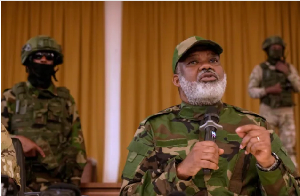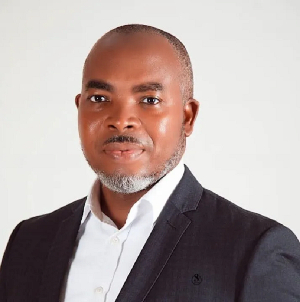Associate professor of political science at the University of Ghana, Ransford Gyampo has said the GH¢100,000 filing fee requested from presidential aspirants by the Electoral Commission for the upcoming December polls is only a test of their fundraising abilities.
According to him, raising such funds by persons with hopes of occupying the most superior position in the country must come with very little or no stress at all.
He believes amongst other things that soliciting funds to undertake developmental projects to run the country is one of the core functions of a president - the title all aspirants complaining would want to be called in the coming weeks.
“I think that to be a president, one of the attributes, requirements and one of the track records we’d have to look at before we give you mandate to govern is your ability to fundraise. You should be a fundraiser. If they say you should pay GH¢100,000, I’m not sure they’re telling you to dip your hand in your pocket and pay…,” he proffered.
While many people have tagged the pegging of the said amount as an attempt by the Electoral Commission to sell the presidency to the highest bidder and also justify corruption, Prof Gyampo thinks otherwise.
In an interaction with GhanaWeb, Prof Gyampo said “People have argued that GH¢100,000 is too much and that it may be a hindrance to participation and that it would ensure that only those who have are given the chance to contest. I understand that kind of argument but…my response is simple, participation and democracy come with rules and there are hurdles and hindrances that will always have to be jumped…”
He further explained that, “If you want to be a president of Ghana if you’re not 40 years you cannot contest and that should be a hinderance on its own…so there are always requirements and hinderances that would have to be crossed to demonstrate a certain seriousness…if you’re a presidential hopeful worth your sort then you should be able to raise this fund.”
Prof Gyampo maintains that the numerous complaints from some parties and other stakeholders are not substantive.
Politics of Thursday, 17 September 2020
Source: www.ghanaweb.com

















